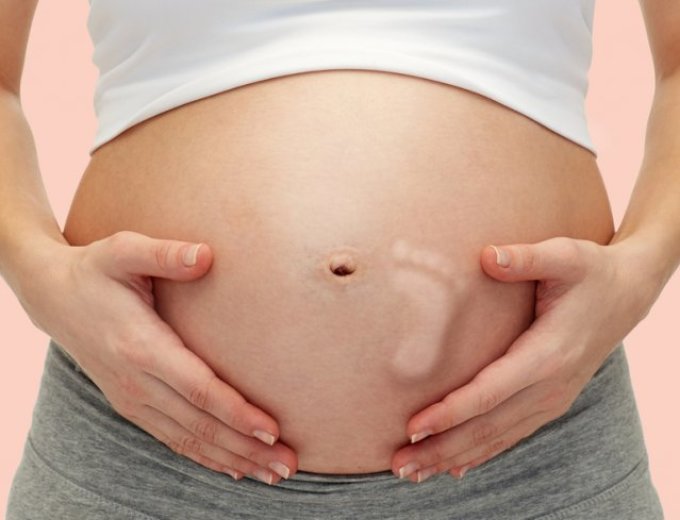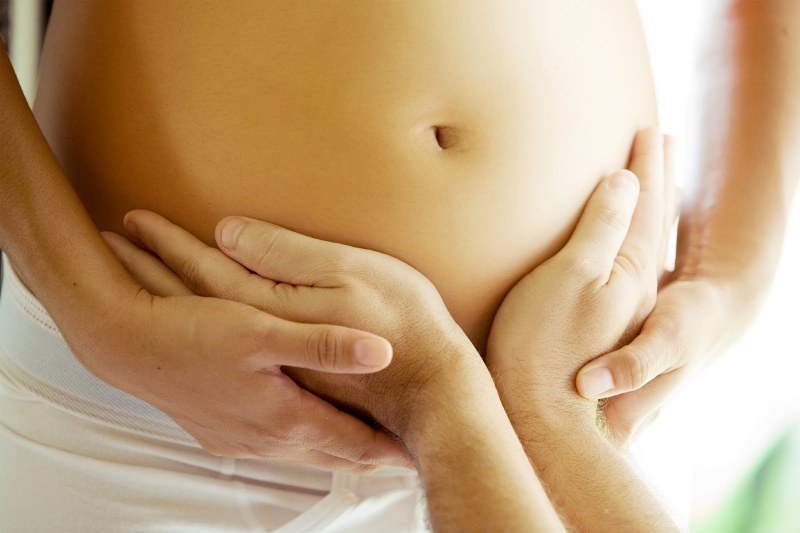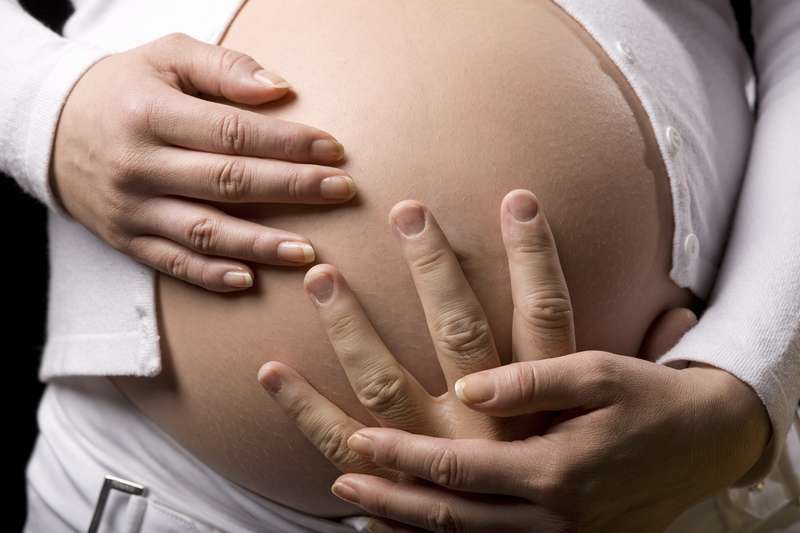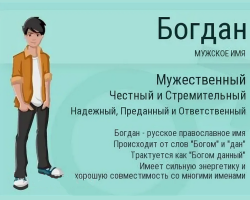The child is kicking.
Content
- When, how many months does a child begin to kick in the first and second pregnancy?
- How the child is kicking in the stomach: sensations
- Why is the child strongly and painful, very often kicks in the stomach?
- Why does the child kick in the stomach on the one hand, in the left, right side, in the lower abdomen?
- How often should the baby be pushed in the stomach?
- Whether the child is kicking before childbirth, when fighting
- Video: How is the baby pushing in his mother's stomach?
When the child begins to move in his mother in his tummy - this is a very important point. For all expectant mothers, such a topic is very in demand. After all, each time you worry, and whether the baby began to kick and whether he is active. To dispel all the experiences, it is worth dutting all the dots over "and." I only want to stipulate right away that every woman has its own physiology, and there are no strict norms in this matter.
When, how many months does a child begin to kick in the first and second pregnancy?
This period cannot be compared with anything. It was at the moment when the child pushed his tummy for the first time, flying to the seventh sky with happiness. And after that you begin to realize that there is a new life inside you. Yes, believe me, many (especially young mothers) do not immediately understand all responsibility and in general what is happening to them. Yes, and up to five months in most, the tummy can be barely noticeable.
When this happens:
- Let's just say the baby is alive and all the time that he is in the tummy moves. It is natural and normal. The fact is that in the early stages the baby is so tiny that any shocks are not felt. Yes, and he is behind so many protective layers (meaning, placenta, uterus and amniotic water). And he also does not reach the walls of the uterus itself.
- The baby is growing up and the movement of the leg towards the mother’s tummy becomes noticeable. This happens on average on 20 weeks During the first pregnancy.
- During the second and subsequent pregnancies, this important point will come a little earlier - on 18 weeks.
- But! It happens that mom begins to feel the baby’s movements for another 16 or even 15 weeks of pregnancy. And there are cases, the child begins to kick for only 24-25 weeks. Neither in the first nor in the second case you need to worry (pregnant women cannot be nervous at all). Better rejoice at any minute of your special situation.

So that there are no questions without answers, let's look at this nuance in more detail. Why are babies kick at such different terms and what is the norm:
- The first reason is a weak noticeability and, perhaps, not even the realization of what it happened. After all, the baby is pushing very weakly in the first time. Here we will immediately answer why during the first pregnancy this happened a little later. For the second time, the future mother knows all the sensations, and what they should be.
- An important role is played by the weight of the fetus. Yes, you will feel the leg of a larger baby faster.
- Also, the weight of the future mother makes her adjustments. Slender girls will feel faster when the baby began to kick. And those whose thickness is subcutaneous and fat layer, of course, will feel a move a little later.
- And, of course, the threshold of sensitivity. Each woman has his own. Therefore, this is such an individual question that doctors put such a long period within the norm. But, of course, no later than 25 weeks. Otherwise, it is necessary to consult with the attending physician.
- And also, the activity of the young mother’s intestines affects. Sometimes, due to its increased work, the fetus can overshadow.
- Also, temperament, nature and regime of the future baby are already manifested.
- The number of amniotic fluid also contributes. The more of them, the sensations will not be so expressive. And with their small quantity, of course, on the contrary.
- Also, the location of the placenta plays a role. Those in which it adjacent to the posterior wall of the uterus will feel the fetal movements a little earlier.
- Well, of course, the state of the health of the crumbs is related. I think there is no need to delve into this topic in detail.
- By the way, the fact has a great influence - whether the child is desired. As a rule, the shocks of planned and long -awaited children feel faster.
How the child is kicking in the stomach: sensations
Words do not convey such sensations, they need to be felt. Any mother will say, especially with her unmarried friend (which it is time to have their children). Yes, these are really pleasant sensations. But rather, not physically, but spiritually.
The sensations of how the baby is kicking will change in the process of growth. And this is natural:
- In the very first stages, somewhere up to 15 weeks, it was already stipulated that the movements were simply not noticeable. Rumbling in the abdomen and then gives more signals. There are cases when mothers claim that they hear the baby (especially the young, who want to quickly feel it on themselves). Sometimes indeed, in the early stages you can poorly notice its movements, but often they are confused with the usual activity of the intestine. Especially given the fact that pregnant women have increased gas formation.
- After 15 weeks The sensations are already more noticeable and understandable. That is why most mothers begin to feel how the baby is kicking. Each mother, of course, can be different. But in average, tremors are pleasant, barely noticeable, reminiscent of some gurgle. Some compare this with fluttering or even touching the feather. But over time, this feather will show which bird sits in my mother in the tummy.
- After 20 weeks, movements become obvious. You can catch some of his movements. By the way, he can still turn and somersault. Therefore, to understand whether he kicked his hand or foot is still hard. The sensations are a little similar to fish swimming. She splashes in the water, and her movements are even pleasant. Movements become similar to the impetus. For example, he could touch his leg. But they are very tender and light. By the way, during this period the baby can hiccup and mother can understand this. It will be rhythmic twitching within itself. Especially, they will be noticeable in the position.

- Closer to 24 weeks Shoulders can’t confuse with anything. Sometimes even strokes with a leg or fist can interfere with falling asleep.
- 25 week They are considered the peak of the baby's activity. He still has a free place, and he is strong enough for great wakefulness. On average, at least 10 shocks should be somewhere in a day. By the way, you need to consider that each baby has its own regime. In the tummy, the children also sleep, which means they do not act. It feels like this is already a real shift.
- To 28 weeks The child takes the position of the “head down”. The emphasis or fist of the fist is already becoming tangibly. But, if the child has not yet taken this situation, then it is worth being afraid or worried. He has another 8 weeks in stock. That is, closer to 36 weeks, the baby will take the right position.
- As a rule, after 32 weeks, the child is no longer very pleasant. Often future mothers complain that the baby is strongly kicking in one side or interferes with normally lying. That is, he already indicates an uncomfortable position. If the mother fell incorrectly, then the baby will immediately let the baby know about this with kicks in the side. And it is worth changing the pose, how the child calms down. The leg can already be visually seen or even felt with your hand (when he put it out). Every day, the baby becomes more closely in his home every day and his mother clearly feels any of his movements.
Why is the child strongly and painful, very often kicks in the stomach?
Moms are interested in this issue, mainly in a later date. The child is still too weak in the early weeks and he has enough space so as not to cause his mother discomfort. But any changes in your body need to be stipulated with your attending physician. Especially those aspects that cause you inconvenience or experience. Let's look at those cases when you need to urgently go to the hospital, and when it is within normal limits.
- The most unstressed reason why the child is very much or too actively pushing is that the mother lies inconveniently. Yes, it is worth turning over to the other side or change too long sitting position, as the baby calms down.
- Also, the baby can express its discontent. Already at this age, the baby can show his character. Maybe he does not like some external smells or the taste of food. Or maybe mom listens to music too loudly (or just the tastes do not coincide). Naturally, you need to change the situation.
- And maybe it sounds strange, but the baby can not like what mom does. Especially if the activity captures for a long time. For example, mom sits for a long time in an uncomfortable pose for the baby and embroiders or watches TV. Well, you just need to change the type of activity. Or at least just get risen after a long sitting position.

- Everyone knows that the child is experiencing all her emotions with his mother. Therefore, take a closer look at yourself. Perhaps you are a little nervous for several days or sleeping badly lately, and the baby feels your fatigue. In this case, you should drink tea with chamomile or mint, calm down or fall asleep.
- By the way, in terms of food you also need to be careful. Sometimes too acidic or spicy food can provoke the excessively active behavior of the baby.
- The baby is still in his mother in his tummy, hears perfectly everything that happens outside. Listen, maybe a child is just glad to hear the dad who came home after a long working day.
- But what to do if everything is in order with food, the pose and activities were changed, everything is in order with the nerves, and the baby will not calm down. It is necessary to report this to the doctor in the near future. It happens that the baby has a lack of oxygen. And such a problem can only be solved by medical treatment. The main thing, do not let the question on a gear and do not self -medicate.
Why does the child kick in the stomach on the one hand, in the left, right side, in the lower abdomen?
The time of its shocks can be completely different, as well as the intensity of the kick. We have already figured out what is considered the norm. But most mothers are confused by the fact that the baby is pushing only on one side.
- This is more than normal. After all, our arms and legs are on the one hand (more precisely, they bend in one direction). That is, you do not feel the shocks from the side where the back is located. This is the first plus - it means that the child is in order with development.
- The second plus - he does not change his position or does it extremely rarely. So there is less chance that the baby will decide to turn his head up.
- On the left or right side, most likely, simply indicates where the child turned. That is, if it kicks in the left side, then the back is on the right side. And even more often, the blows are a leg.

- By the way! There is such a sign - from which side the baby is more often kicking. If the main shock is on the right side, then there will be a boy. If in the left side the baby most often reminds of himself, then this is a girl.
- If the baby is kicking in the lower abdomen, then this is not a reason to panic. Yes, the child turned over and his legs are below. But nothing terrible happened. If this happened after 36 weeks, then you should be wary. After all, in the future, the baby will be very difficult to roll over. Although, there are times when the baby turns over almost before the birth itself (this happens with the right and incorrect position).
How often should the baby be pushed in the stomach?
On this occasion, many future mothers, to put it mildly, are worried. There are even mothers who are trying to stir up the baby, lightly pushing the stomach. And there are such children that even at night they do not calmly sleep.
- I immediately want to note that you do not need to focus on this too much. Believe me, when you begin to calculate its shocks, you find only an extra reason to be nervous. No, it is not necessary to let this business either. Just listen to the behavior of the baby.
- On average, the child should push his mother at least 10 times a day. If the term is small, then movements, of course, is less. For example, for 20 weeks there are up to 4 beats.
- But! This is the average value. It happens that someone has a baby too active and makes significantly more shocks. And someone has a more passive child and may not reach 10.

- Sometimes it happens that the baby is tired and not too much today. Naturally, it depends on the mother’s regime. Maybe she walked a lot today or stood for a long time. You need to lie down, relax and let the baby relax.
- It is believed that 10 stirring should occur before 5 pm. But practice shows that each baby has its own regime. Some just woke up for night dancing or football. And there are those who wake mom at 4-5 in the morning, kicking her.
- Therefore, take into account your individual mode (more precisely, your crumbs). Be sure to inform the doctor when the peak of your activity falls. But, if all the indicators and analyzes are normal, you and the baby feel good, then there is no reason to be nervous.
- An alarming signal will be that the baby moves little and in the lower abdomen feels pain (sharp or aching). This is an occasion to contact the hospital immediately.
Whether the child is kicking before childbirth, when fighting
Often future mothers, especially young ones, do not pay due attention to the baby before childbirth. And if there are swift births, then not at all before. Perhaps this is due to the unrest that expect the baby and mother the day before. But often this fact can serve as a signal.
- Immediately before childbirth, even before he began fights, the child stops so actively kicking his mother. This signal can not always be caught. After all, the baby was most active in the evening, and in the morning he was born.
- By the way, often the original ones are placed in the hospital long before an important point. And the expectant mother is in anticipation and even slight excitement. This is fine. Therefore, often the baby’s movements are missed.

- If the baby has not become so active or completely stopped kicking his mother in the side, then the fights will begin soon.
- During the welding themselves, the baby is also preparing for the birth. And the pain is so severe that it is impossible to catch his movement. It’s just not to accounts how and how many times the baby pushed his foot.
- No, the baby is moving. Just now his actions are directed in a different direction. After all, he also participates in the process of childbirth. Therefore, some argue that childbirth should take place without anesthesia. Thus, mom fully feels the baby.
That is why doctors (or a special device) are connected to check the baby's heartbeat. Especially if the childbirth was slightly dragged.








The author would also learn the rule of the Russian language, namely, to and -t